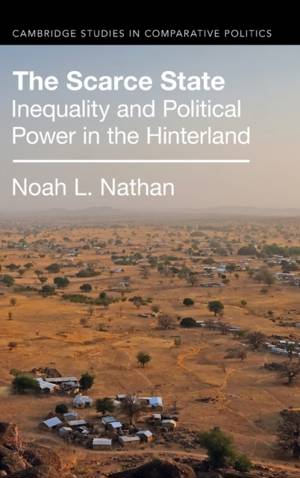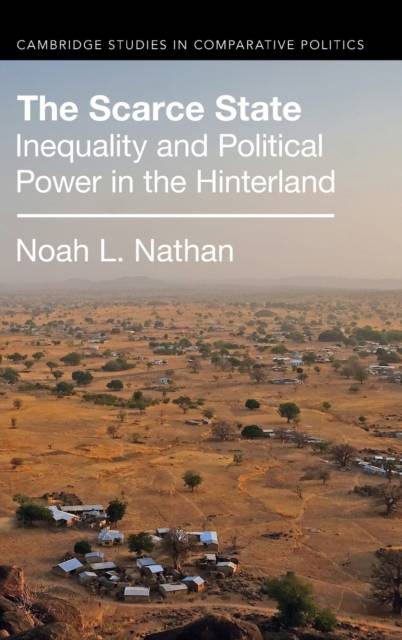
- Afhalen na 1 uur in een winkel met voorraad
- Gratis thuislevering in België vanaf € 30
- Ruim aanbod met 7 miljoen producten
- Afhalen na 1 uur in een winkel met voorraad
- Gratis thuislevering in België vanaf € 30
- Ruim aanbod met 7 miljoen producten
Zoeken
€ 172,95
+ 345 punten
Uitvoering
Omschrijving
States are often minimally present in the rural periphery. Yet a limited presence does not mean a limited impact. Isolated state actions in regions where the state is otherwise scarce can have outsize, long-lasting effects on society. The Scarce State reframes our understanding of the political economy of hinterlands through a multi-method study of Northern Ghana alongside shadow cases from other world regions. Drawing on a historical natural experiment, the book shows how the contemporary economic and political elite emerged in Ghana's hinterland, linking interventions by an ostensibly weak state to new socio-economic inequality and grassroots efforts to reimagine traditional institutions. The book demonstrates how these state-generated societal changes reshaped access to political power, producing dynastic politics, clientelism, and violence. The Scarce State challenges common claims about state-building and state weakness, provides new evidence on the historical origins of inequality, and reconsiders the mechanisms linking historical institutions to contemporary politics.
Specificaties
Betrokkenen
- Auteur(s):
- Uitgeverij:
Inhoud
- Aantal bladzijden:
- 310
- Taal:
- Engels
- Reeks:
Eigenschappen
- Productcode (EAN):
- 9781009261104
- Verschijningsdatum:
- 2/03/2023
- Uitvoering:
- Hardcover
- Formaat:
- Genaaid
- Afmetingen:
- 152 mm x 229 mm
- Gewicht:
- 716 g

Alleen bij Standaard Boekhandel
+ 345 punten op je klantenkaart van Standaard Boekhandel
Beoordelingen
We publiceren alleen reviews die voldoen aan de voorwaarden voor reviews. Bekijk onze voorwaarden voor reviews.











